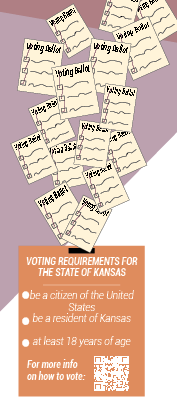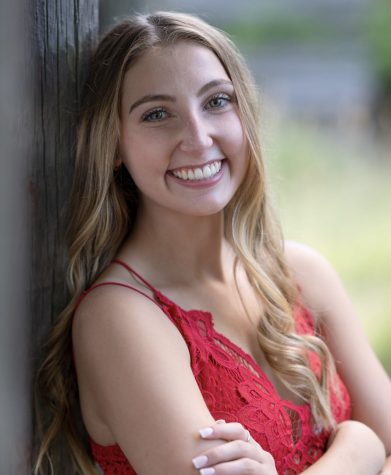America Decides
Student Election Class Re-Emerges

If something happens that’s important to the election, we may drop our plans to talk about it.”[/pullquote]Every four years, the Blue Valley District offers an election class to stay in-line with the presidential election. Following current events, discussing each candidate and analyzing the election process as a whole are some of the many things that students are able to do when taking this class.
Social studies teacher Adam Bien is the only one to teach the American Science National Election Class at Blue Valley High this year.
“In 2016, we had over 700 kids in our school sign up for the class,” Bien said. “Our numbers were so high, we ended up having to kick the freshmen out.”
The course is offered during first, second, third and fifth hours. This now allows for students of all grades to take it to fill a social studies elective credit.
Unlike other social studies classes offered in the district, this class follows a more fluid curriculum that is based on what happens throughout the election.
“If something happens that’s important to the election, we may drop our [scheduled] plans to talk about it,” Bein said.
Day-to-day, students’ focuses are centered toward political socialization discussions, diving into the basics of each branch of government and doing socratic seminars based on candidate debates.
As the school segwayed into the hybrid system, students in courses like this learned to adjust as they see fit.
“We do not offer a full virtual [option] for the election class,” he said. “We’re in-person, and the plan is to do hybrid with all of them.”
Along with this, Bein said “for more of our small group discussions, we are trying to utilize breakout rooms.”
Keeping everyone involved is one of the key priorities in this class, no matter the structure for the rest of the semester.
“It’s kind of like a form of a government class,” senior Sean Brucker said. “You get to learn more about yourself, who you might vote for [and] your political affiliations.”
Being in such an interactive environment, Brucker enjoys “hearing everyone’s opinions about everything and then getting to learn more about stuff that we’d have to learn about on our own” if this class wasn’t offered.
Both students and educators who are a part of this semester-long experience have one primary goal — informing people about voting.
When discussing the importance of this class, Bein said there is usually a very low voter turnout from ages 18-25 due to them not being well informed.
Despite the class being filled with students of all grades, one-quarter of the students enrolled in the class will be eligible to vote in the upcoming election.
Being younger than 18 should not hold students back from taking the steps to be ready to vote when eligible.
Registering yourself and taking classes like this to become educated about the U.S. political system will help increase voter turnout from this generation.
Even though he is not eligible to vote in this presidential election, Brucker and many others hope to use this experience as a way to “learn who to vote for in the future and what to look for in each candidate.”

Liya Patel is a senior this year and is starting her third year on staff. She enjoys spending time with her friends and family and loves to go on drives...

Claire Stein is a senior, and this is her first year on staff. She enjoys drinking coffee, going shopping, hanging out with friends and listening...



